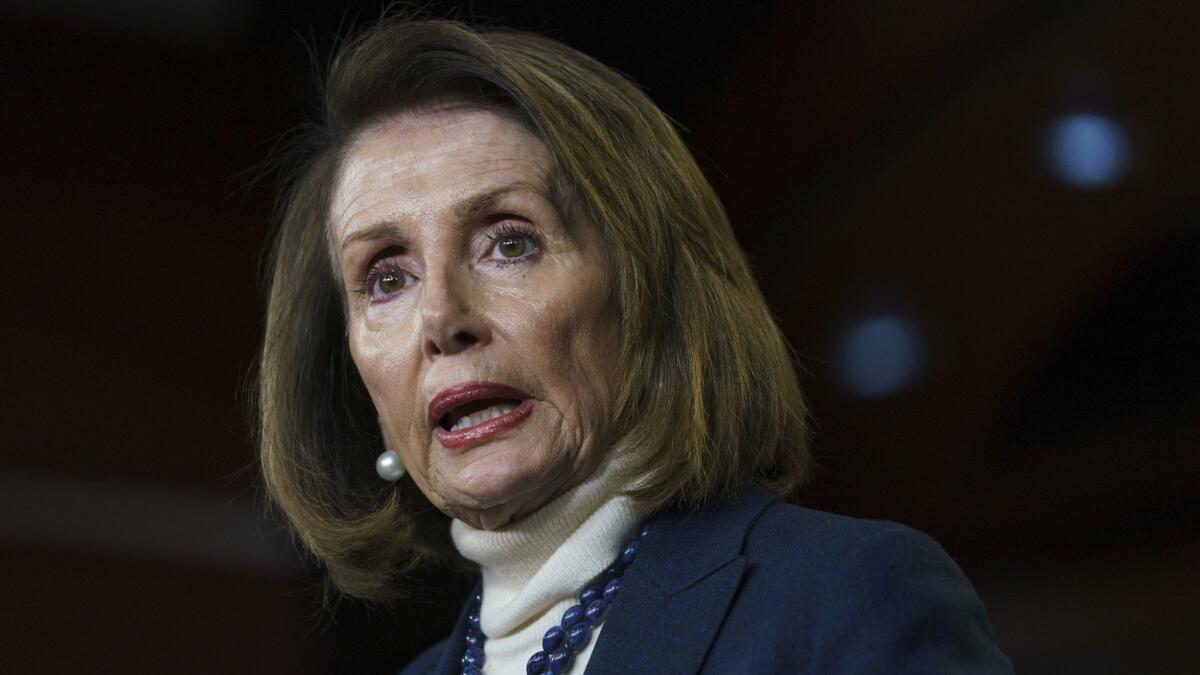Pelosi says House will vote on resolution opposing Trump’s emergency declaration

- Share via
Speaker Nancy Pelosi announced Wednesday night that the House will vote in the coming days on a resolution disapproving President Trump’s emergency declaration to build a wall on the U.S.-Mexico border, encouraging her members to support the effort as they try to stop construction.
In a letter, the San Francisco Democrat said Trump’s declaration “undermines the separation of powers and Congress’ power of the purse, a power exclusively reserved by the text of the Constitution to the first branch of government, the Legislative branch, a branch co-equal to the Executive.” She announced that the House would move “swiftly” to pass the resolution within days.
“All Members take an oath of office to support and defend the Constitution,” Pelosi wrote. “The President’s decision to go outside the bounds of the law to try to get what he failed to achieve in the constitutional legislative process violates the Constitution and must be terminated.”
Pelosi’s announcement formalizes a strategy House Democrats settled on several days ago. Party leaders had been anticipating Trump’s emergency declaration for weeks and had been working behind the scenes on a two-pronged approach that would include passing a disapproval resolution to put Republicans on record on the matter — then eventually suing or joining a lawsuit challenging the declaration in court.
House committee chairmen, including Judiciary chief Jerrold Nadler (D-N.Y.), anticipate holding hearings on Trump’s declaration.
California to sue Trump administration over national emergency declaration »
The resolution is expected to sail through the Democratic-controlled House. Its fate in the Senate, where Republicans hold a 53-47 advantage, is less certain.
The resolution would need a simple majority to pass the upper chamber. But while many Senate Republicans advised Trump against unilaterally moving money around to build his wall, it is unclear how many will rebuke him by supporting the Democratic resolution.
Some of those same critics who said it would be a bad idea for Trump to get the funding without Congress have quieted their protest — or even reversed course — after the president’s decision to ignore their advice.
Should the measure pass the Senate, White House officials have already told surrogates that he will veto the bill. Congress is unlikely to have the numbers to override that veto.
The real challenge to Trump’s declaration will come in the courts. Several Democratic-led states, including California, have filed suit against the administration.
Rachael Bade writes for the Washington Post.
More to Read
Sign up for Essential California
The most important California stories and recommendations in your inbox every morning.
You may occasionally receive promotional content from the Los Angeles Times.










